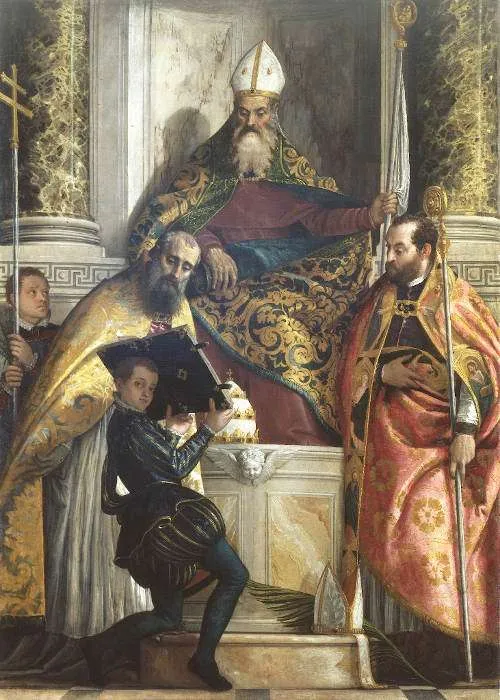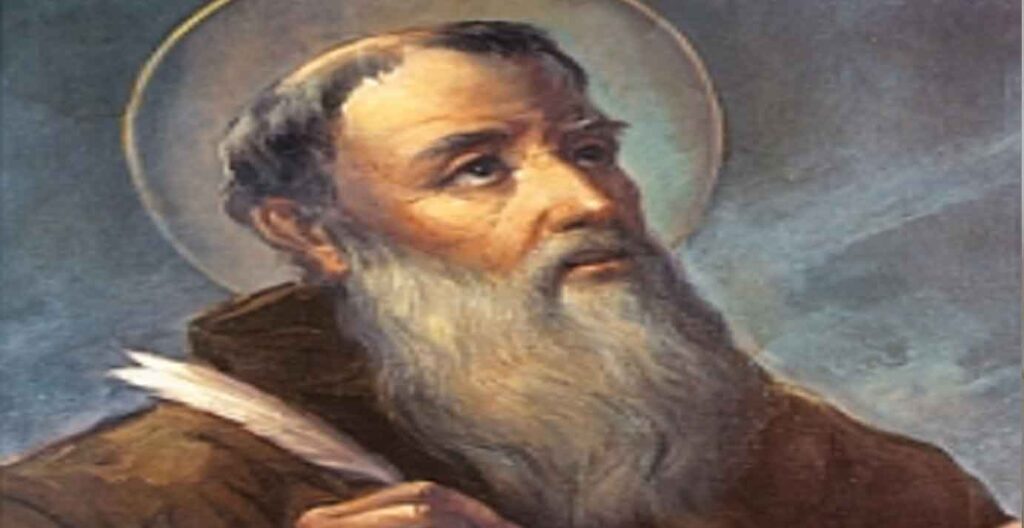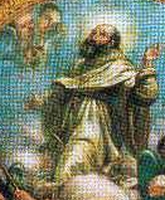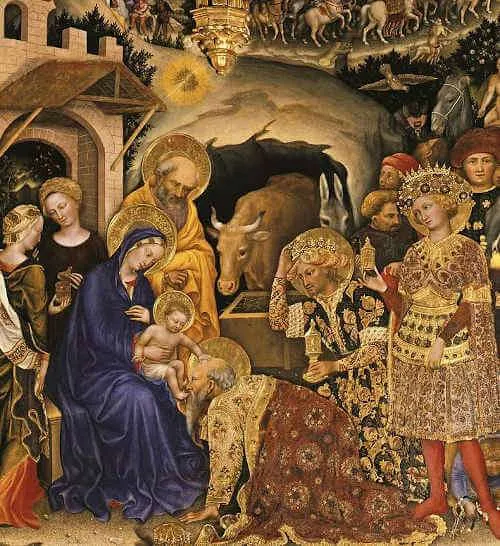Saint Cornelius: d. 253; Patron Saint of cattle and domestic animals; Invoked against earaches, epilepsy, fevers, and twitching
Saint Cyprian: c. 200–258; Patron Saint of Algeria and North Africa; Pre-Congregation canonizations
Today, we honor Saints Cornelius and Cyprian. Nothing is known about Cornelius’s upbringing and early life. In 251, he was elected as the twenty-first pope, a position he held until his death two years later. Cyprian, born Thascius Caecilius Cyprianus, was the son of wealthy pagan parents in North Africa. Well educated in Greco-Roman literature and rhetoric, he had a successful career as a lawyer and teacher. Around the age of forty-six, he converted to Christianity and gave much of his wealth away, devoting himself to prayer and asceticism. Within three years, he was ordained a deacon, a priest, and finally, the Bishop of Carthage, in modern-day Tunisia, North Africa, around the year 249.
In 250, Roman Emperor Decius implemented the first empire-wide, systematic persecution of Christians. He required all citizens to offer sacrifices to the Roman gods in the presence of Roman officials. Once citizens had performed this sacrilegious act, they received an official certificate of sacrifice confirming their compliance. Those who refused faced threats of property confiscation, torture, prison, and even death. Emperor Decius died in battle the following year, which brought an abrupt, albeit temporary, end to the persecution.
During the Decian persecutions, Pope Fabian had refused to offer sacrifices to the Roman gods and was martyred. Afterward, ongoing and fierce persecutions made it impossible to elect a successor to the Chair of Saint Peter. During that time, various priests in Rome, including a priest named Novatian, helped govern the Church. After fourteen months, once Emperor Decius died and the persecutions ended, a group of bishops gathered in Rome and elected Cornelius as the new pope. Novatian was displeased with this development and had himself ordained as a second bishop of Rome, positioning himself as the first antipope.
By 251, the Church faced internal conflict regarding what should be done with those who had complied with the sacrifices. These individuals were referred to as lapsi for lapsing in their faith. Some bishops supported reconciliation of the lapsi, while others did not. Among the supporters of mercy were Pope Cornelius and Bishop Cyprian.
The rival Bishop of Rome, Novatian, believed that the Church did not have the authority to forgive those who had offered sacrilegious sacrifices to the Roman gods. As a result, he believed that the lapsi could not be restored to full communion with the Church and readmitted to the sacraments. Pope Cornelius firmly disagreed, maintaining that after repentance and a period of public penance, the lapsi could be welcomed back into communion with the Church.
After Novatian became antipope, Pope Cornelius convened a synod of sixty bishops in Rome who supported him and jointly excommunicated Novatian. From there, bishops across the Roman Empire were invited to show their support for the legitimate pope and for the pastoral approach of reconciling the lapsi. One of the most fervent supporters of Pope Cornelius was Bishop Cyprian, who was among the sixty bishops who attended the synod in Rome. Following the synod, he wrote extensively to gain others’ support.
After Emperor Decius died, Gallus became the Roman emperor. Though Gallus did not continue the empire-wide persecution of Christians, he did support the restoration of pagan Roman religious practices. Within a year of becoming emperor, he had Pope Cornelius exiled to Centumcellae (modern-day Civitavecchia), a city just outside Rome, on the Mediterranean coast. A year later, due to harsh conditions, Pope Cornelius died in exile and is considered a martyr.
In 253, Emperor Gallus died in battle, and Valerian became Roman emperor. At first, he was somewhat indifferent to Christians; however, in 257, he initiated his own empire-wide persecution. He first decreed that the clergy had to participate in Roman pagan rituals. A year later, he ordered the death of bishops, priests, and deacons who refused to renounce their faith. Laypeople were stripped of their titles, and their property was confiscated. Bishop Cyprian was among those arrested in 257. In 258, he was put on trial in Carthage, and when he refused to renounce his faith, he was beheaded. When the sentence was pronounced, he exclaimed, “Thanks be to God!” In gratitude, he even gave his executioner a gold coin.
Being a man of exceptional learning, Saint Cyprian left behind a wealth of writings. He wrote many letters, providing us with a clear picture of the historical situation of the Church and the Roman world at that time. He defended the Church against the lapsi heresy, worked to end the Novatian schism, and wrote works on the unity of the Church, the Lord’s Prayer, Christian death, almsgiving, and the Sacraments.
Saints Cornelius and Cyprian lived and served Christ and His Church during a tumultuous time. They faced severe persecution from the state and led the people of God through that suffering by word and example. They also vigorously supported the unity of the Church, were merciful to sinners, and were true shepherds of their flocks.
As we honor these early saints, ponder the impact that they had on the early Church. Their witness affected the people of their time and has had an ongoing effect upon subsequent generations. Honor these holy men of God by imitating their courage and mercy in your own life so that God will use you to influence not only those in your life but also those who will come after you in ways that are known only to God.
Source: https://mycatholic.life/saints/saints-of-the-liturgical-year/saints-cornelius-and-cyprian/








